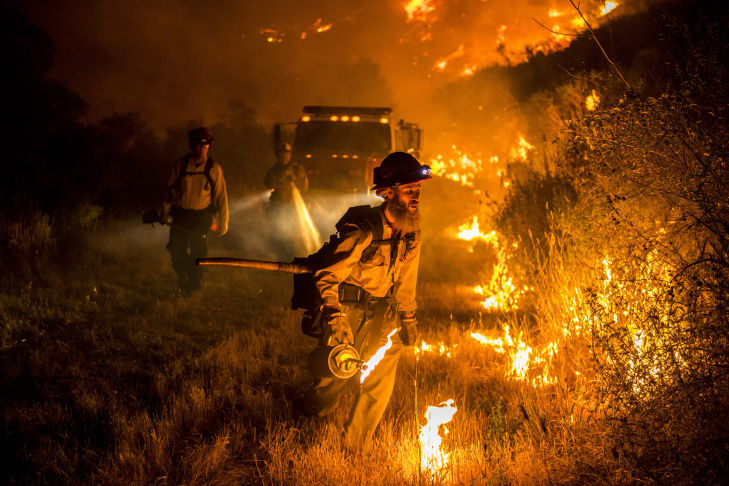 Our program is designed to take you through a prescribed sequence of training and field experience, ensuring that academic training is properly matched up with the context of work experience. Your success is based on your commitment to the program, learning and yourself.
Our program is designed to take you through a prescribed sequence of training and field experience, ensuring that academic training is properly matched up with the context of work experience. Your success is based on your commitment to the program, learning and yourself.
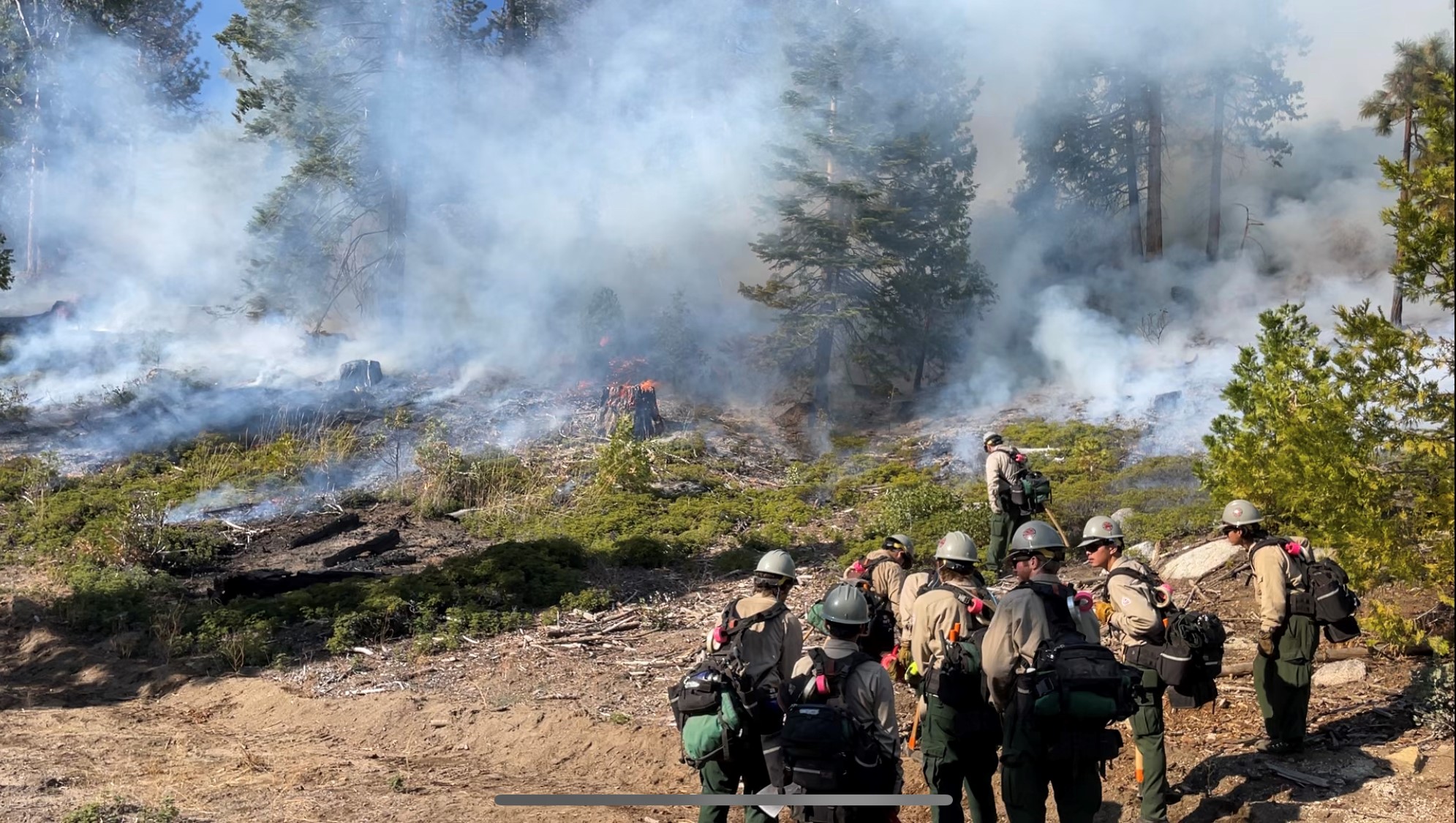 Prerequisites:
Prerequisites:
None
1st FALL Semester, 1st 9-Weeks of the semester
Mid-August - Mid-October
Monday, Tuesday, Wednesday: 0800-14:30
Phase-1 Course(s) (5.5 Units)
- NR-98 Wildland Fire Basics Academy (5.0 units)
- NR-108 Field Studies (.5)
**Students will be authorized enrollment into NR-108 & Phase 2 NR-95 by their instructor during the first week of NR-98
This is the first phase in professional wildland fire training and development. During this phase students will learn basic wildland fire concepts and will attain the basic training required for employment into the Federal and State Wildland Fire Service. Students will gain understanding into the professional culture of wildland fire and the physical demands essential for the occupation. Students will be introduced to basic skills and attributes vital of a wildland firefighter.
PHASE 1: industry Certificates Earned
- NWCG: S-130 Wildland Firefighter Training
- NWCG: S-190 Intro to Fire Behavior
- NWCG: L-180 Human Factors in the Wildland Fire Service
- FEMA: 1-100 Introduction to the ICS
- FEMA: IS-700 b. Introduction to the NIMS
 Prerequisites:
Prerequisites:
- NR-98 Wildland Fire Basics
1st Fall 2nd 9-Weeks of the semester
Mid-October - Mid-December:
Monday, Tuesday, Wednesday: 0800-14:30
Phase 2 (9.0 Units)
- NR-95 Integrated Fuels Management (9 units)
This course trains students in the profession of hazardous and strategic fuels management and basic fire ecology concepts. Students will receive instruction on Fuels project development, fire behavior, fire weather and crewmember functions. Students will ascertain practical and tactical experience on fuels reduction projects ranging from chainsaw operations, brush clearing and tree felling. Students will be introduced to mechanical fuels treatment application through use and operation of small mechanized equipment such as skid steerers and mini-excavators. Data collection, project safety and management will be emphasized.
Phase 2: Industry Certificates Earned
- NWCG: S-212 Wildland Firefighter Training
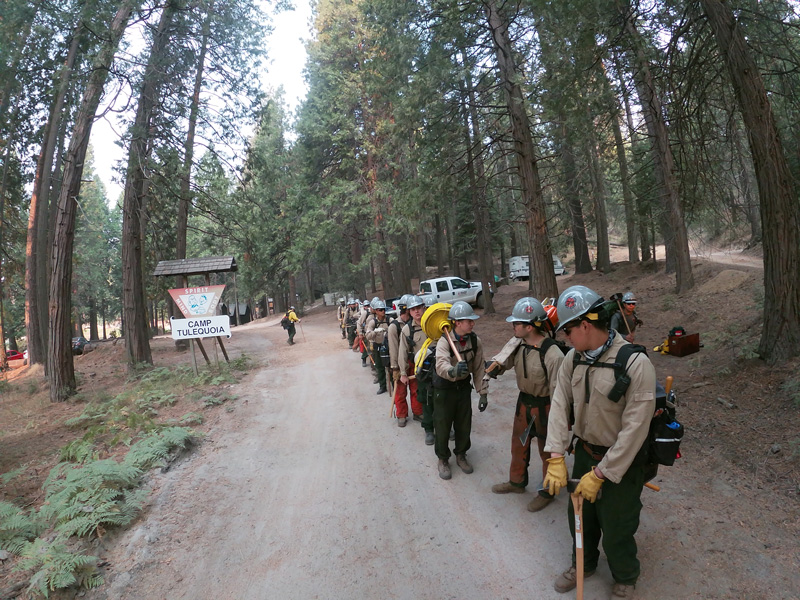 Prerequisites:
Prerequisites:
- Phase 1 & 2 Courses
- Completion of NR-97 Orientation (dates will be announced)
- Successful completion of Federal Work Capacity Test with in the last 2 years
- Or 1 season on a wildland fire module (discretion of Instructor)
1st Spring Semester, Full Semester
Mid-January - Mid-May:
Monday, Tuesday, Wednesday: 0800-15:30
Phase 3 Courses
- NR-97 Wildland Fire School - Fundamentals (14 Units)
- NR-110 Linked Field Studies (0.5 units)
This is the third phase in professional wildland fire training and development. During this phase students will learn to operate using the wildland fire fundamentals. This coursework will rely heavily on physical scenario-based field training repetitions, applied use of skill sets and knowledge. Students will get the opportunity to work as a crew under standard protocols and chain of command. Students will be organized in crew formation and will become proficient in operational standards and crewmember responsibilities.
Phase 3: Certificates Earned
- NWCG: S-133 Look up, Look Down, Look Around
- NWCG: S-211 Portable Pumps and Water Use
- NWCG: S-212 Wildland Fie Chainsaws
- First Aid CPR
- HAZMAT-FRA
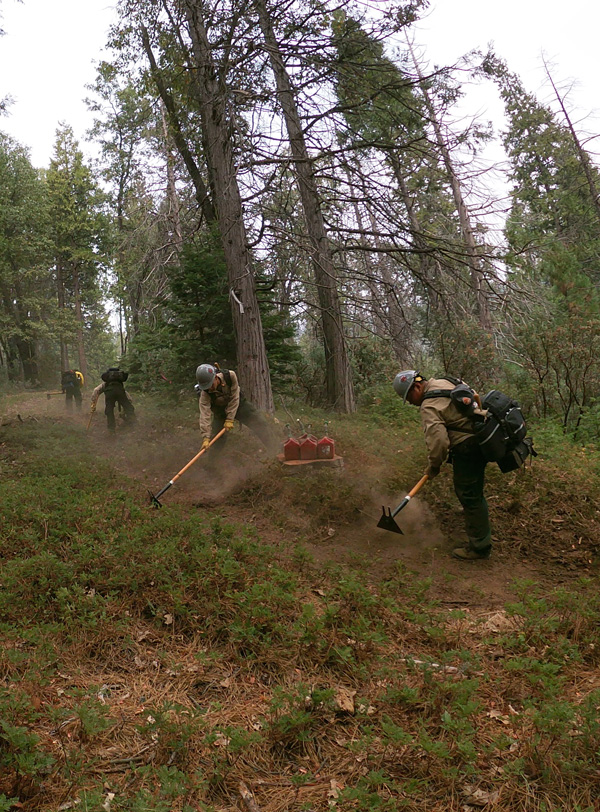 Prerequisites:
Prerequisites:
1st Summer through Fall, Work Experience & Occupational Context
Phase 4 Courses
- NR-19V Wildland Fire / Fuels Management Experience (7 units needed/525 hours)
Students have the opportunity to receive college credit for work experience. In order for students to proceed to NR-96 Wildland Fire school Advancement, it is required that work experience in the wildland fire service be attained. This requirement ensures that the students have the National Wildfire Coordinating Group prerequisite experience and context necessary to grasp the concepts and skill required of the material to be delivered in their next phase of wildland training.
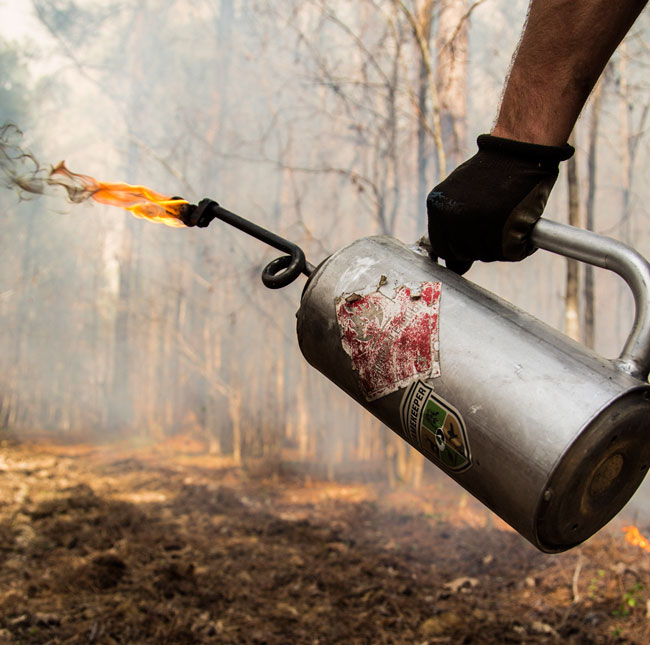 Prerequisites:
Prerequisites:
- NR-97 Wildland Fire School Fundamentals
- NR-19V Wildland Fire / Fuels Management Experience (7 units needed/525 hours)
- Successful completion of Federal Work Capacity Test with in the last 2 years
- Or 1 season on a wildland fire module (discretion of Instructor)
2nd Spring Semester, 1st 9 weeks
Mid-January - Mid-March:
Monday, Tuesday, Wednesday: 0800-14:30
Phase 5 Courses
- NR-96 Wildland Fire School-Advancement (9 unit)
The wildland Fire School Advancement course is the third/final phase in wildland fire crewmember training and development. Students who have competed the suite of wildland fire coursework up to this point will be eligible to competitively apply for permanent GS-5 Senior Firefighter positions in the Federal Fire Service. During this phase of training, students will learn to apply fundamental concepts into action while exploring fire line leadership development and basic supervision elements.
Phase 5: Certificates Earned
- NWCG: S-131 Firefighter Type 1
- NWCG: S-290 Intermediate Fire Behavior
- NWCG: S-219 Firing Operations
- NWCG: L-280 Followership to Leadership
- FEMA: ICS-200 ICS for Initial Response
- IAT: A-110 Aviation Transport of HAZMAT
- IAT: A-219 Helicopter Transport of External Cargo


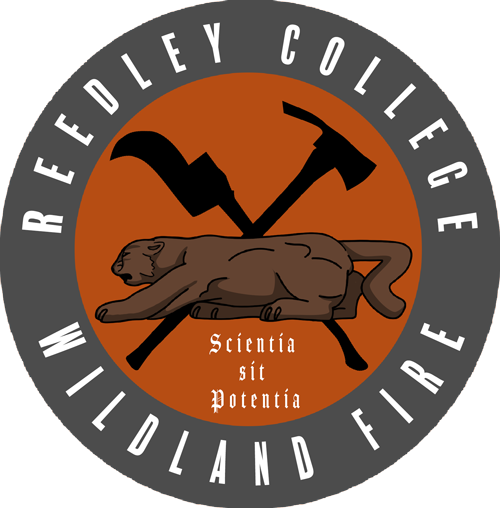 Why Study Wildland Fire at Reedley College
Why Study Wildland Fire at Reedley College Our program is designed to take you through a prescribed sequence of training and field experience, ensuring that academic training is properly matched up with the context of work experience. Your success is based on your commitment to the program, learning and yourself.
Our program is designed to take you through a prescribed sequence of training and field experience, ensuring that academic training is properly matched up with the context of work experience. Your success is based on your commitment to the program, learning and yourself. Prerequisites:
Prerequisites: Prerequisites:
Prerequisites: Prerequisites:
Prerequisites: Prerequisites:
Prerequisites: Prerequisites:
Prerequisites:
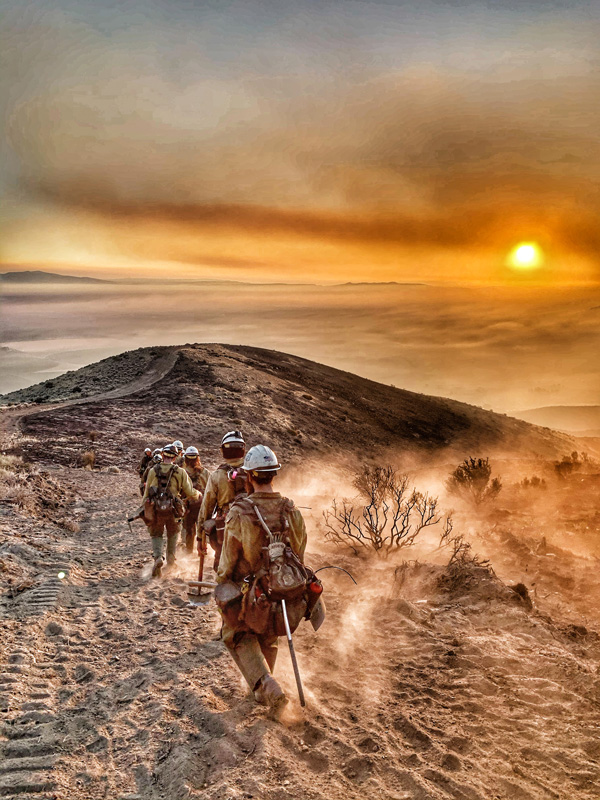 Work Experience
Work Experience




